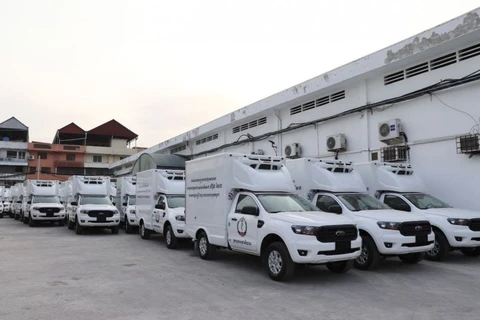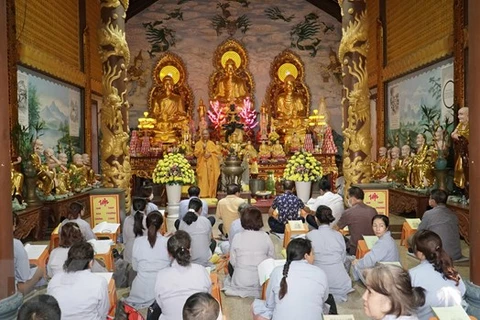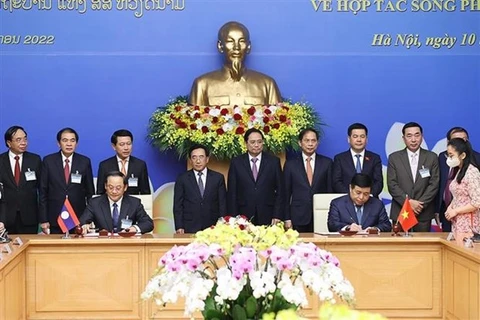Vientiane (VNA) - The year-on-year inflation rate jumped to 7.3 percent in February, the highest figure recorded in Laos since January 2016.
The surge in consumer prices has been driven by the spiraling cost of fuel and other imported products due to the continuing depreciation of the kip, according to the latest report from the Lao Statistics Bureau.
The demand for foreign currencies, notably US dollars and Thai baht, remains high as businesses must use these currencies to import goods.
Consumer prices surged more than expected over the past seven months, driven by both internal and external factors.
According to the Lao Statistics Bureau, the external factors impacting the costs of goods and services are mostly linked to the COVID-19 pandemic and the Ukraine crisis, resulting in a volatile global fuel market.
The price of fuel in Laos has increased six times so far this year, which has had a huge impact on the inflation rate. The cost of meat and fish surged by 5.3 percent year-on-year while the price of fruit and vegetables rose by 6.8 percent year-on-year. The price of medical care and medicines rose by 0.38 percent month-on-month and 9.39 percent year-on-year. Prices in the restaurant and hotel category surged by 0.11 percent month-on-month and 8.65 percent year-on-year.
Besides, the cost of food and non-alcoholic beverages in February increased by 0.45 percent month-on-month and 5.47 percent year-on-year.
The government has been working to stimulate production in order to reduce imports and control fuel prices, helping mitigate impacts on the economy and people. It has decided to cut Value Added Tax from 10 to 7 percent this year and cut all fuel reserves./.
The surge in consumer prices has been driven by the spiraling cost of fuel and other imported products due to the continuing depreciation of the kip, according to the latest report from the Lao Statistics Bureau.
The demand for foreign currencies, notably US dollars and Thai baht, remains high as businesses must use these currencies to import goods.
Consumer prices surged more than expected over the past seven months, driven by both internal and external factors.
According to the Lao Statistics Bureau, the external factors impacting the costs of goods and services are mostly linked to the COVID-19 pandemic and the Ukraine crisis, resulting in a volatile global fuel market.
The price of fuel in Laos has increased six times so far this year, which has had a huge impact on the inflation rate. The cost of meat and fish surged by 5.3 percent year-on-year while the price of fruit and vegetables rose by 6.8 percent year-on-year. The price of medical care and medicines rose by 0.38 percent month-on-month and 9.39 percent year-on-year. Prices in the restaurant and hotel category surged by 0.11 percent month-on-month and 8.65 percent year-on-year.
Besides, the cost of food and non-alcoholic beverages in February increased by 0.45 percent month-on-month and 5.47 percent year-on-year.
The government has been working to stimulate production in order to reduce imports and control fuel prices, helping mitigate impacts on the economy and people. It has decided to cut Value Added Tax from 10 to 7 percent this year and cut all fuel reserves./.
VNA























